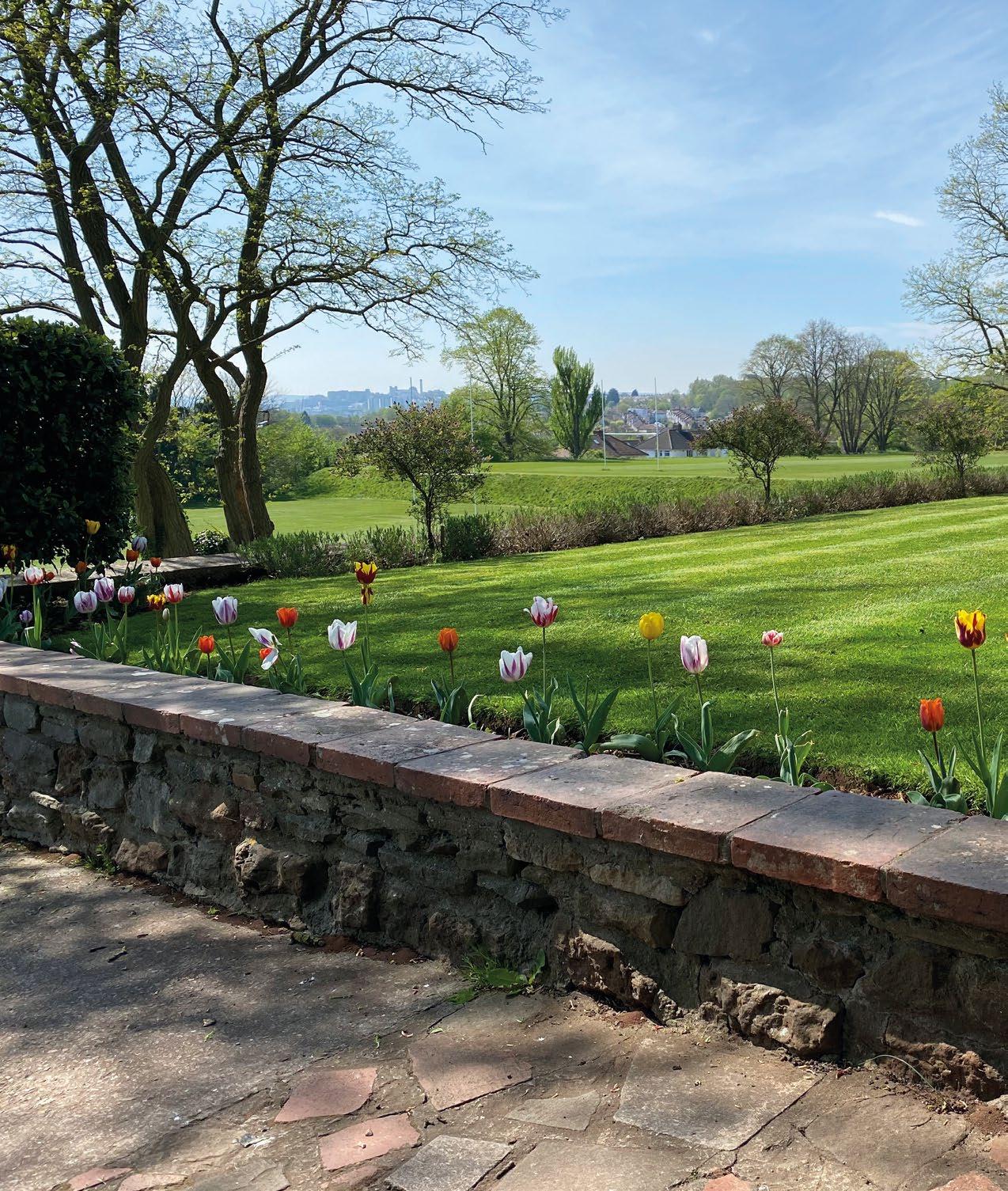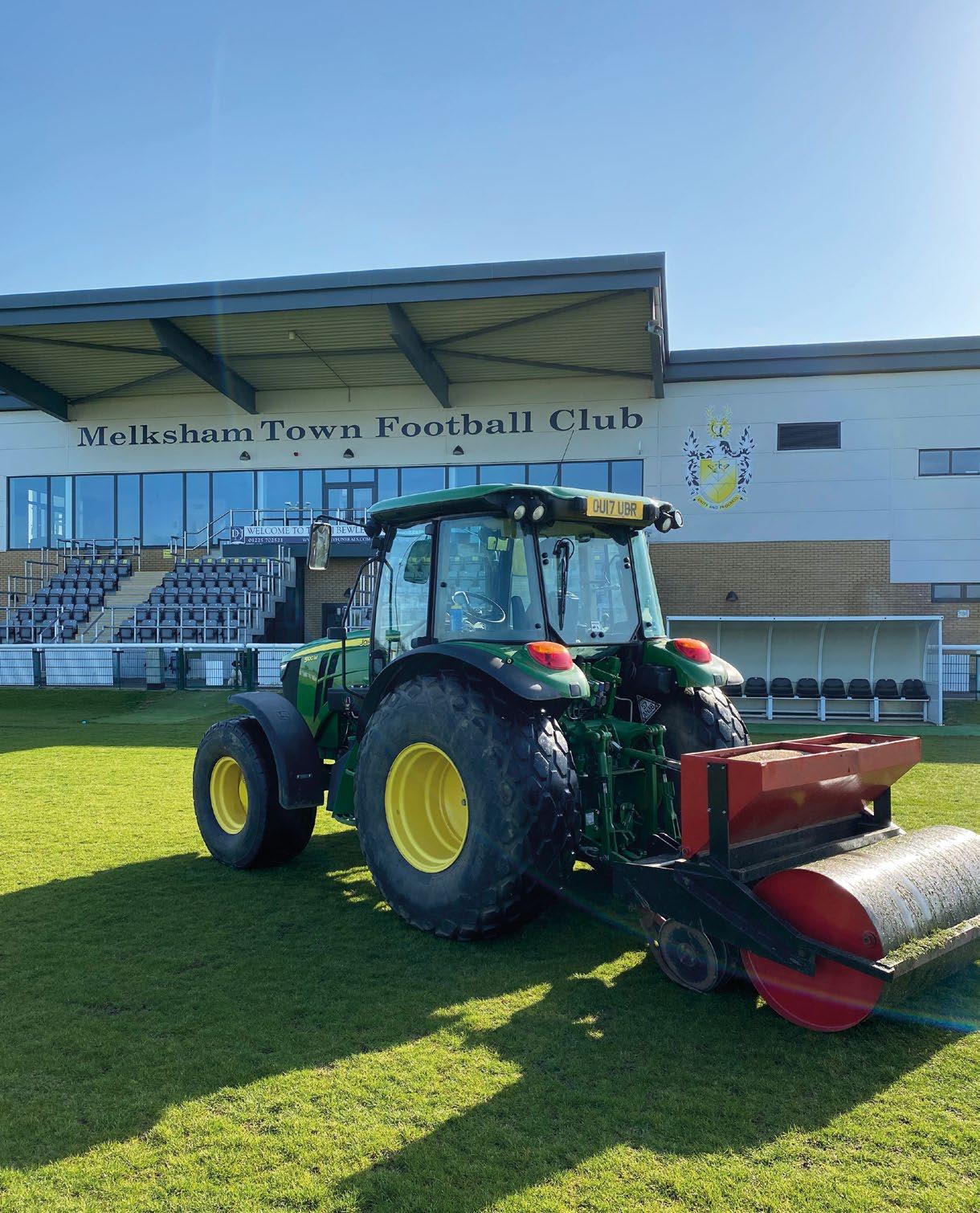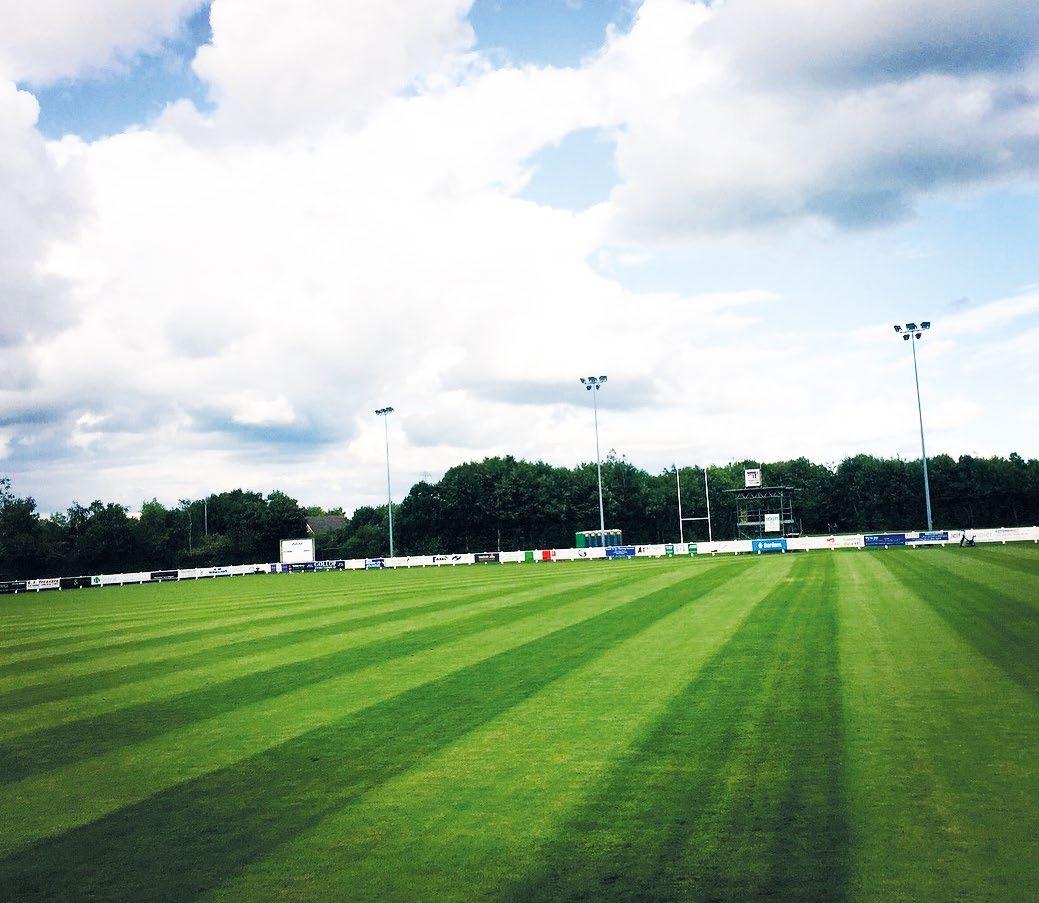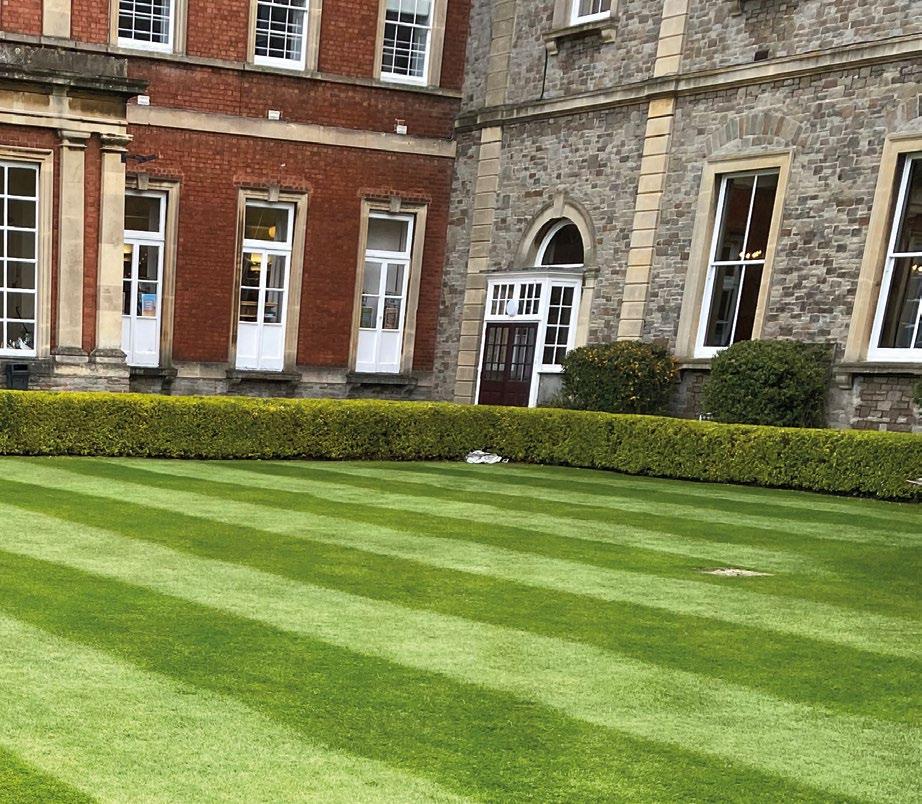
9 minute read
SALTEX news
TECHNICAL UPDATE | COVID-19 ADVICE SALTEX
UPDATE
KEEP IN TOUCH
SALTEX 2021 will take place on March 3 & 4, 2021 at the NEC, Birmingham. For more information, visit www.gmasaltex.co.uk. Follow SALTEX on Twitter and Facebook
Industry praises Spring 2021 decision
SALTEX press officer
The recent announcement that SALTEX has been rescheduled to Spring 2021 has been met with enthusiastic support from both exhibitors and visitors
THE GROUNDS MANAGEMENT
ASSOCIATION (GMA) Board of Directors said that the unanimous decision to move SALTEX from November 2020 to March 2021 was based on ensuring the safety of everyone connected with the event and to provide the respite required to re-adjust to changing professional and personal circumstances. Furthermore, the Board believes that by acting now, the move will allow everyone to plan as effectively as possible and help the industry to regroup and recover.
The announcement has been well received, with exhibitors and potential visitors praising the timing of the decision.
“We are pleased to see the GMA take decisive steps to deal with the growing doubt and anxiety about SALTEX going ahead in November,” said David Cole, managing director of Reesink Turfcare. “It would have been a difficult decision for a variety of reasons, but for us the right one to remove uncertainty and replace it with a date we can look forward to with optimism.”
David’s views are echoed by Caroline Shaw, European marketing manager for Trimax Mowers. “The decision to postpone the largest show of the year couldn’t have been easy,” she said. “But the decisive action, coupled with the determination to put the health and wellbeing of our industry professionals first, is something we are proud to support.”
Tom Shinkins, operations manager at GKB Machines, believes the new dates could be advantageous: “I believe the new dates will actually be more beneficial because we’ll be able to arrange demonstrations with prospective new customers straight after the show.”
Social media channels and online forums were flooded with industry professionals who also welcomed the announcement:
“It’s a sensible decision which allows everyone to concentrate on the here and now, then focus for 2021,” said Neil Stubley, head of courts and horticulture at the All English Lawn and Tennis Club, Wimbledon.
Karl McDermott, head groundsman at Lord’s, said: “Sad news but the right decision. I always see SALTEX as a great way to finish off the cricket season but now it is going to be a nice warm-up for next season. I’m looking forward to March 2021.”
Landscaper Greg Francis was also positive about the decision: “I’m looking forward to it. It’s a much better time of year for the gardeners because it is non-stop leaf clearance during October and November.”
Speaking on behalf of the GMA
Chris Bennett
Board, Geoff Webb, CEO at the GMA commented: “We would like to thank our exhibitors, visitors, partners and suppliers for their support and patience during this challenging time. It has been highly encouraging to see the industry come together and support the GMA’s decision.”
Early indications for SALTEX 2021, the show’s 75th anniversary, are extremely positive after show organisers reported a recordbreaking loyalty period, stand upgrades and an influx of debut exhibitors. It comes off the back of the most successful SALTEX to date which saw a record breaking 9,104 visitors attend the 2019 event. ■
For SALTEX sales and sponsorship:
Matthew Knight: matthewknight@rabdf.co.uk Charles Neale: charlesneale@rabdf.co.uk Luke Perry: lperry@thegma.org.uk
For SALTEX invoicing enquires:
Alan Clarke: accounts@thegma.org.uk



PRESENTING A PRESTIGE SERVICE
One grounds maintenance contractor goes beyond the call of duty to ensure its work is something to be proud of – so much so that Prestige Grounds Ltd last year collected a GMA industry award for its unstinting efforts
Colin Hoskins Editor
IF THERE is a secret to the continued success of contractor Prestige Grounds, “it is because we pride ourselves on the standards of our work; in particular, on the presentation of the finished pitch”, says director Bradley Anderson. He adds: “We do not apply the ‘get it done as quick as we can’ attitude. Instead, we always focus on the end result; often double cutting grass to achieve a nice ‘chequered’ look and increasing mowing frequencies, when not contracted to do so, and even, on occasion, overseeding at our own cost to consistently maintain an improved and neat site.”
It’s an attitude that explains why the company has continued to go from strength to strength since its establishment in 2015. Operating from its base in Ford, Wiltshire, the firm has never lost a contract – indeed, it has continued to gain new clients – and its quality of work was last year recognised at the GMA Industry Awards when Brad stepped up to receive the AMS Robotics Public Sector Sports Grounds Team of the Year Award.
Prestige Grounds’ constant success has also led to an increase in its workforce (to three full-timers and one part-timer) “to enable us to maintain our high standards in managing a range of facilities for parish councils, private and state schools, as well as football, rugby and cricket clubs, for example”. Brad continues: “We perform a variety of tasks – depending on the time of year, extending from the annual renovations of sports pitches, line marking and yearround grass cutting to bin emptying and litter picking in parks, as well as hedge maintenance.”
While the GMA award was, he says, “due recognition for the team; the company wouldn’t be able to provide such a high level of service without the outstanding attitude they adopt”, the turning point in sports pitch maintenance was, he reflects, the positive impact of a Pitch Improvement Programme (PIP) report produced in 2018 (the year of the Beast from the East followed by a very hot summer) on a set of parish council pitches being maintained by Prestige Grounds.
Shoots of recovery
“After only a year of renovations, and despite that very hot summer, I was really worried that the work we had put into the pitches was going to be wasted,” Brad says. “After seeding the pitches (not for the first time out of my own pocket) I was so pleased to see the improvements in the surfaces –
Left to right: Prestige Grounds’ outstanding service results in high standards of presentation


both visually and on paper via the PIP reports – and these, in turn, have enabled the council to improve its revenues because fewer games are being cancelled. Indeed, one team which had left to go to a new-build facility wanted to return to these pitches halfway through the season because they were so good.”
He adds: “On the same site, we also managed to address a cricket square which had some really bad ‘saddles’ at either end. We Koro’d the surface then laser-levelled on the very undulating square. While the grow-in didn’t go to plan – without a water source and a dry September and October, the square was left with little grass – with constant work over the winter and early spring, we managed to produce a square that the cricket teams were delighted with.”
Small budget, big results
Brad cites another major achievement as taking over the maintenance of a trust-owned public open space where, with limited budget, the company focused on a first team football pitch. The pitch was constantly having matches cancelled and it had very little grass coverage, most of it being annual meadow grass mixed with moss and weed. “It transformed after being renovated, and one memorable event was when I received a phone call on a very wet Saturday morning a few weeks into the season asking if that pitch could be used because the scheduled site was waterlogged. For the very first time, we were able to offer that pitch ‘because of the work you have done’, said the trust.”
With budgets for schools and parish councils, in particular, being the tightest they’ve ever been, Brad says Prestige Grounds “often finds itself double cutting to give the chequered look” despite being paid to cut it in only one direction. “It’s the same with mowing frequencies, which are increasingly being contracted at fortnightly. But I can’t leave a playing field looking messy so we regularly cut weekly.”
The company’s level of service doesn’t end there, as Brad concludes: “Each of our clients has my personal phone number and email which they can use to contact me at any time, seven days a week. This is great for some people – though not for my wife! – but I want to be available for my customers. We look after a lot of sports clubs run by volunteers and they regularly contact me for help, asking about anything from the colour of the pitch to changing the mower height. And I wouldn’t have it any other way.” ■
Life during lockdown
Bradley Anderson reflects on the challenges of this unprecedented period
WELL, WHAT A YEAR we have had so far – starting with the wettest winter on record and, from the day grassroots sports was cancelled, it dries up!
We hoped this break [due to Covid-19] would give us the opportunity to have renovations completed earlier than ever, resulting in great seed germination due to the March and April showers. How wrong we were.
As the days went on and talk of lockdown became more prominent, thoughts of whether we would be paid were accompanied by doubts over whether we would even be allowed to work. Lockdown was announced at the time we were able to start making the first cuts on some of our sites. I immediately abided by Government guidelines, with one person only travelling in each vehicle. Although this would cost more money, taking three vehicles to the same site was the safest thing to do. We also ensured staff used the same equipment – mowers and hand tools, for example, wouldn’t be shared.
After managing to get the first cut on most sites and seeing key workers’ children bringing desks out onto the fields to create outdoor classrooms, while also witnessing the vast number of people taking their daily exercise, I felt we were doing the right thing.
How has the pandemic affected the industry?
Many grassroots sports clubs only survive thanks to summer tournaments, clubhouse functions and matchday bar/tea takings. Clubs have therefore struggled. Some have luckily managed to gain a rates grant, but one of their largest outgoings – if they employ a contractor – is grounds maintenance.
Most clubs stopped their planned renovations and at some sites we have tried to make the minimal number of visits to reduce their costs yet still keep the pitches at a decent standard. On most sites we have undertaken more cuts than we have been contracted for; I believe that now is the time when grassroots clubs really need help.









